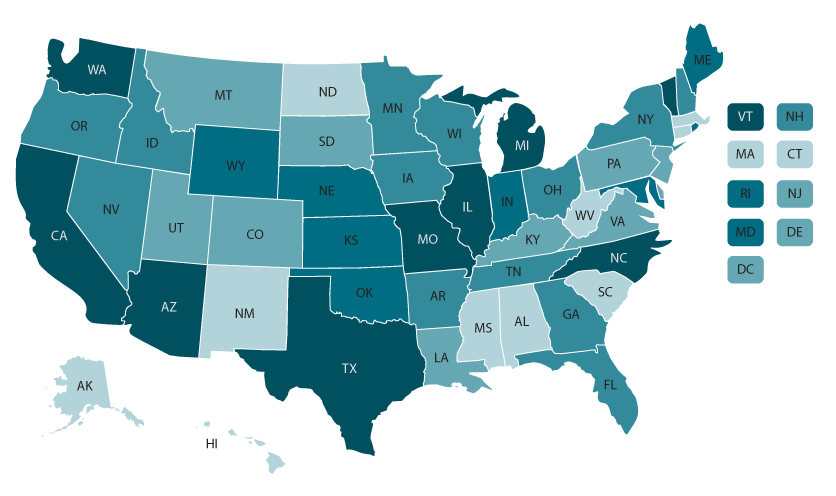Trends in Nursing Home Complaints (2011-2015)
The nursing home complaint process is a critical safeguard to protect vulnerable residents of nursing homes. The Centers for Medicare & Medicaid Services relies on the States' respective survey agencies to respond to health and safety concerns raised by residents, their families, and nursing home staff. State agencies must investigate the most serious complaints onsite within certain timeframes. However, a July 2006 Office of the Inspector General report found that State agencies did not conduct onsite investigations within the required timeframes for some complaints. Our September 2017 data brief "A Few States Fell Short In Timely Investigation of The Most Serious Nursing Home Complaints: 2011-2015" examines the extent to which States met required timeframes for investigating the most serious nursing home complaints between 2011 and 2015. To complement this data brief, the interactive map below displays details on nursing home complaint trends between 2011 and 2015 for each State, including the number of complaints received and the number of the most serious complaints that a State investigated late.
View a text-based version of this data.
View an updated interactive map with 2016 through 2018 nursing home complaint data.

Rate of Complaints per 1,000 Nursing Home Residents by State in 2015

Source: OIG analysis of ACTS data, 2017.
Definitions
Immediate jeopardy complaints allege a situation in which the provider's noncompliance with Federal requirements has caused, or is likely to cause, serious injury, harm, impairment, or death to a resident.
High priority complaints allege a situation in which the provider's noncompliance with Federal requirements may have caused harm that negatively affects the resident's mental, physical, and/or psychosocial status.
